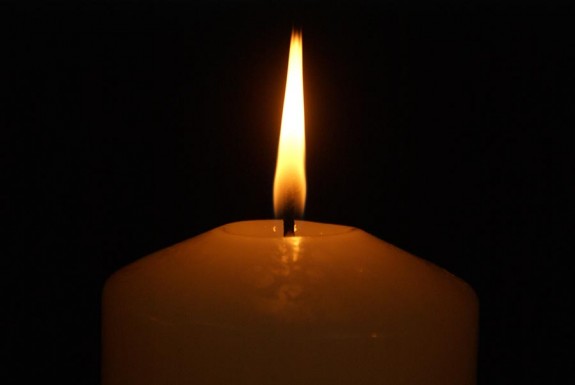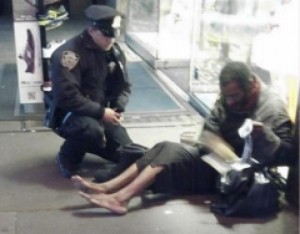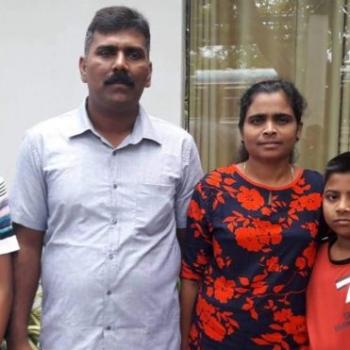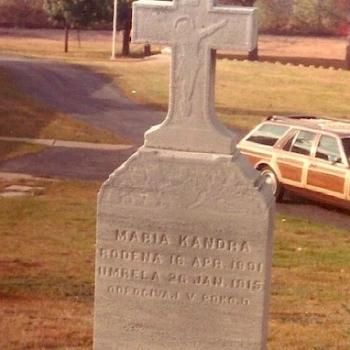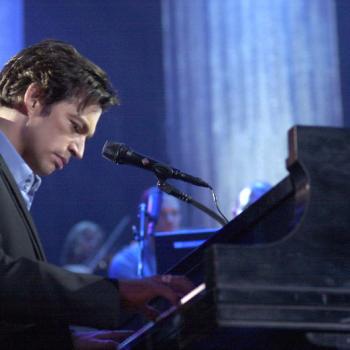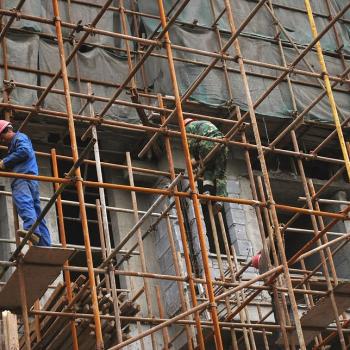If you wanted to sum up the meaning of Advent, this beautiful and haunting season of waiting, you could do it with just one question:
What are you waiting for?
Most people, I suspect, would say, very simply, we’re waiting for Christmas, the birth of Jesus.
But the gospel this Sunday that begins our Advent season suggests that that answer isn’t really accurate. What Advent is really about is something greater and deeper than what you see in the malls or watch on TV. It transcends jingling bells and twinkling lights. It even transcends time.
What we are waiting for, really, is the end of time.
We are waiting for Christ to come – not as a baby in a manger, but as a king in the clouds.
We’re waiting for our final judgment, and the concluding event of history. This isn’t a time for sentiment, but for searching—searching our hearts, making choices.
Advent by its very name itself calls attention to the great event described in today’s gospel: the Latin word “adventus” is actually a translation of the Greek “parousia,” which refers to Christ’s second coming. It’s Christianity’s most anticipated event. As we pray at every Mass: “We wait in joyful hope for the coming of our savior Jesus Christ.”
It’s useful to remember this: Advent doesn’t commemorate what was, but anticipates what will be.
And it calls us to be. To be watchful. To be ready. To be holy.
“Be vigilant at all times,” Jesus told his followers. Do not grow complacent. Don’t let your heart become drowsy from the anxieties of life.
In our own time, that isn’t easy. We are constantly distracted— and overwhelmed. We don’t need the gospel to fill us with alarm; we have the nightly news. We hear daily about the fiscal cliff, climate change, Superstorms, drones, depression, recession, poverty, abuse, persecution, ethnic cleansing, genocide.
Which brings us back to the great question of Advent:
What are you waiting for?
What are we all waiting for?
We are waiting for our Savior. The Prince of Peace. We are waiting for Christ. “O come Emmanuel, and ransom captive Israel.” We are a world in chains.
Advent reminds us the chains will be broken. There will be Christmas. In the darkest of days, we will one day know light. Candle by candle, flame by flame, there is hope.
We remember how that hope came into the world 2,000 years ago, and wait for his return at the end of history. But we also remember, at every Eucharist, that he continues to come into our lives, into our outstretched hands, into our hearts. Christ continues to make himself known to a seeking, struggling world. Thomas Merton once wrote that there are three comings of Christ – when he was born, when he will return at the end of time, and now. Here. Every day.
But we are human. We need work. We need constant renewal. Advent is the time to repair what is broken, to heal what is hurt. It is the time to remember the work that we need to do on our lives, our spirits, our hearts. And so we make ourselves ready. We prepare. We clear the way. Valleys are exalted, crooked ways made straight.
We do that work best on our knees. Use this season to pray more deeply. Celebrate the sacrament of reconciliation. Break out those rosary beads buried in a dresser drawer.
And then we need to get off our knees and on our feet. Give to the needy. Visit the lonely. Care for the outcast. Forgive those who trespass against us.
Bring light to those struggling with darkness.
As Dorothy Day once said to a priest from the Diocese of Brooklyn: you never know when one of them might be Christ. He might be at your dinner table. In your office. You might even step over him on the street. We wait for Christ the King to return in glory, yes, but how often we meet Christ the Lonely, Christ the Poor, Christ the Forgotten. How often we see him and never recognize him.
What a timely lesson we all had this week, with the story of police officer Larry DePrimo, who ended up on the front page of every newspaper in the city after he was photographed kneeling to put shoes and socks on a homeless stranger on a cold night. Officer DePrimo reminded us of something we easily forget. We might discover Christ today as shepherds did 2,000 years ago: homeless, needing shoes.
No matter where or how we might encounter Christ in our daily lives, we all need to make ourselves ready for his ultimate coming. We need to continue to make ourselves worthy of him.
And so, in the middle of the darkest time of the year, we turn toward a star. We watch it grow brighter and closer. And we strive, in some small way, to reflect that light.
That is Advent. This is Advent. The time to prepare, to renew, to reflect.
The time is here. And now. It is up to us.
So: what are we waiting for?
Who are we waiting for?

